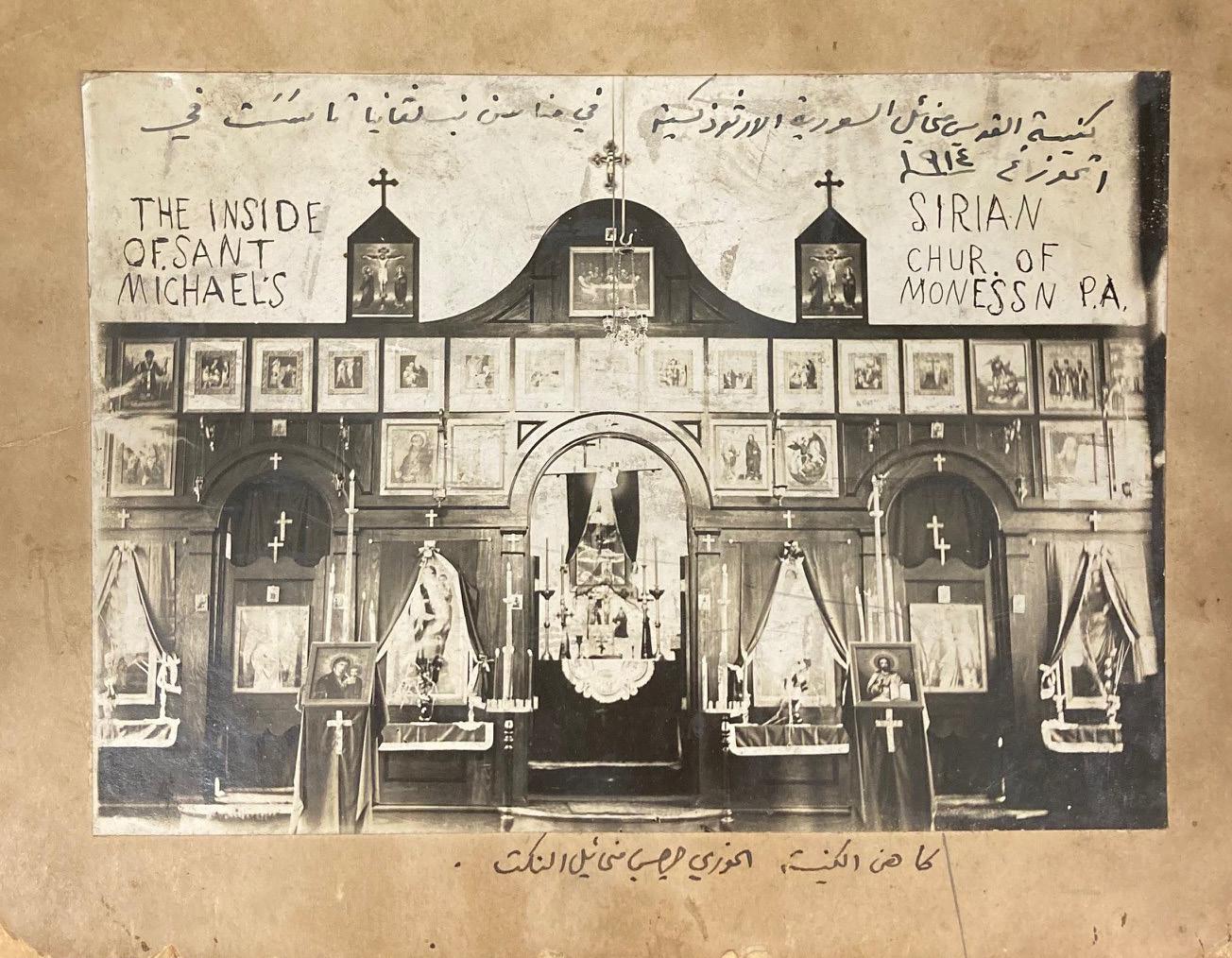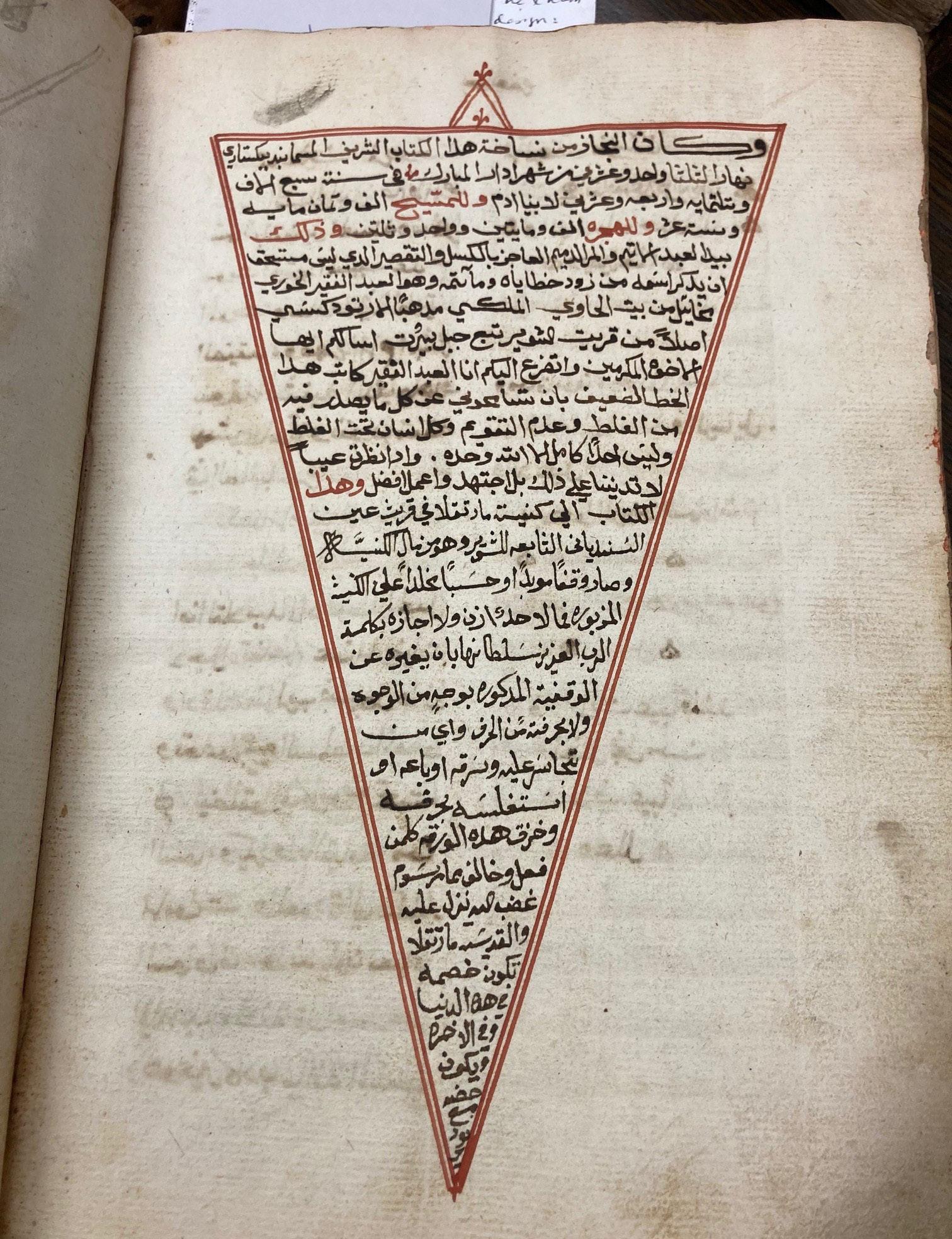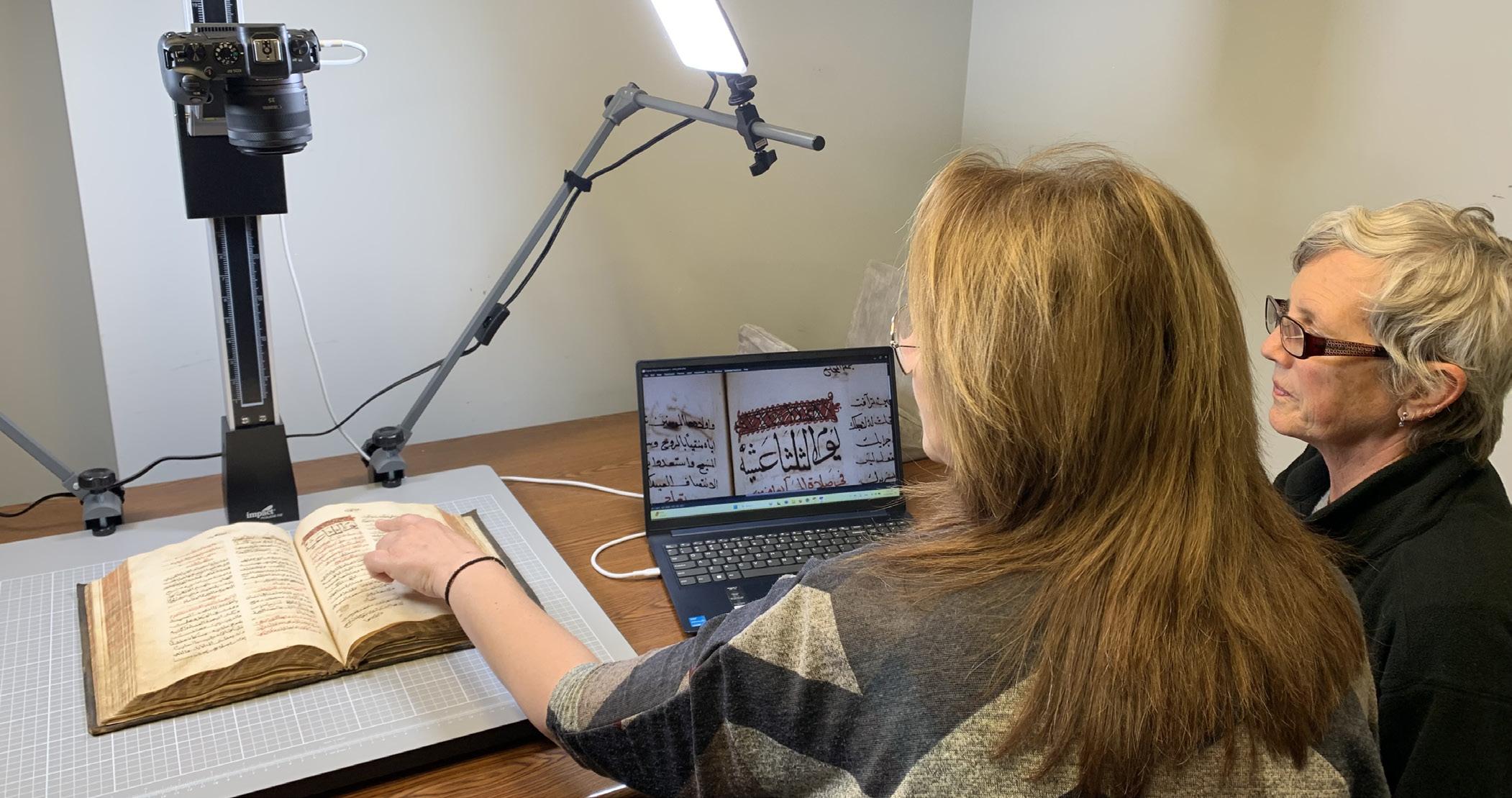
6 minute read
Preserving Our Antiochian Heritage
Julia Ritter, Museum & Library Director, Antiochian Village
The Antiochian Heritage Reservation & Digitization Project.
After much anticipation, the Antiochian Heritage Museum & Library has embarked on an important heritage preservation and digitization project to preserve its archives and rare collections for years to come. The project focuses on our extensive holdings of early manuscripts and books, and will also include letters, photographs, and ephemera relating to early Antiochian communities in North America during the late 19th and early 20th centuries. Many of these items are extremely rare and fragile, with pages that have become brittle, torn, and discolored with age.
Working to preserve the items (through cleaning and repairing) and to digitize them (by photographing and creating a finding aid) not only ensures they will be here for future generations to appreciate, but also allows researchers to view the materials digitally, avoiding the need for direct handling of these fragile works.
Among these special collections are over 50 manuscripts,one of them a 200-year-old Pentecostarion, handwritten in Arabic by a priest from Shweir in the mountains of Beirut. His graceful handwriting, in red and black ink, is punctuated with occasional decorative flourishes. Our holdings also include rare works of Arabic literature and poetry written by members of the Syrian/Lebanese diaspora and published in North America during the 19th century, as well as documents relating to the historic establishment of the Hosn Hospital in Syria. Most items have been donated over the years by families and clergy who would like to see these items preserved and shared with others. The Hosn Hospital archive, for example, was a gift of Mr. Phil Nemy of St. George Cathedral in Pittsburgh, Pennsylvania, whose grandfather spearheaded the remarkable grassroots fundraising effort here in the U.S. during the mid-1900s, which supported the founding of the hospital in rural Syria. above (ideal for photographing manuscripts and books). A subsequent gift included a book/document scanner, two laptops, and two external hard drives, received from a student of the Antiochian House of Studies (AHOS) who was eager to support our work. One of the new laptops now connects to the digital camera, allowing us to shoot high-resolution photographs of books and manuscripts right from the laptop, avoiding the need to climb a ladder to reach the camera’s viewfinder. The second laptop interfaces with the new book scanner, which is used for lowerresolution scanning needs.
During my 18 years at the Antiochian Heritage Museum & Library, we have taken various steps to begin preserving our rare collections and share them with others. One example of this was our recent partnership with North Carolina State University’s Moise A. Khayrallah Center for Lebanese Diaspora Studies, in which the Khayrallah Center staff came to the Antiochian Village to digitize our collection of The Word / Al-Kalemat and some of our parish commemorative booklets. To help us identify the scope and significance of our Arabic-language collections, and to be able to catalog these items, we have also sought the assistance of various Arabic-speaking researchers over the years (mostly on a volunteer basis), among them Dr. Hani Bawardi of the University of Michigan Dearborn. But only recently has the goal of preserving, digitizing, cataloging, and sharing these collections become more solidly within reach, thanks to essential funding, and the arrival of a new staff member.
Pennsylvania’s Empowered History Grant
In 2024, the Museum & Library received a $750 grant from the Pennsylvania State Archives’ Empowered History Micro-Grant program to support these preservation activities (maximum grant $1,000). Due to the overwhelming number of applications submitted, the grant selection process had to be extended by several months, so we were particularly pleased to have received the funding requested. We used the Empowered History funds to purchase additional conservation supplies, including specialized Japanese papers, leather for repairing book and manuscript covers, and a small, lightweight vacuum specially designed to remove dust and dirt particles from fragile materials.
year.
An initial donation of $3,000 from the Orthodox Vision Foundation jump-started this project by allowing us to purchase some preliminary conservation supplies as well as a high-end digital camera, and a copy-stand with lights to secure the camera from
Who is conducting this preservation and digitization work?
The hands-on preservation and digitization work is being conducted by our part-time library digitization specialist, Evleen Jabbour, who joined our staff at the Antiochian Village in October 2023. Evleen brings over a decade of conservation experience, previously digitizing and cataloging the rare manuscripts and archives of the St. John of Damascus Manuscript Conservation Center at the Balamand Monastery in Lebanon. In addition to her expertise in the field of manuscript preservation, Evleen’s first language is Arabic, which allows us to achieve a deeper understanding of the contents of our Arabic collections and their significance within the fields of theological, historical, and literary research. The project itself is taking place completely on-site at the Antiochian Village. Our librarian, Katie Strevig, who holds a Master of Library Science (MLS) degree and has worked in our library for over 13 years, provides essential expertise in the use of the Library of Congress cataloging protocol as well as organizational and technical guidance for this important project.
Why preserve materials from our Antiochian heritage?
Through these efforts, we preserve a littleknown part of history and make it available to of St.
Syrian Orthodox Church, Monessen, PA, early 1900s. The Arabic handwriting reads, “This is St. Michael Syrian Orthodox Church, established in Monessen, Pennsylvania, on 1st of July 1914. Priest of this church is Fr. Gergios Michael Al-Nakat.” a wider audience for generations to come. Our aim is to continue to make it possible for people to learn about and appreciate the experiences of those who came before us, including the experiences of early Arabic-speaking Christians and others who arrived in the U.S. during the late 19th and early 20th century, who established churches and communities starting in New York City, through Pennsylvania, and across North America. Their stories – their thoughts, writings, even their material possessions – serve as windows into their shared and individual experiences, which in turn provide us with insights and deepen our understanding of other cultures and of our nation’s past. These topics are of great interest to scholars and members of our church but also to our conference center guests, many of whom are learning for the first time what “Antiochian heritage” means. Indeed, one of the goals of our Museum & Library is to bridge understanding among people and create eye-opening experiences for our visitors. It is our hope that this project will contribute to this ongoing effort.

An example of the extremely fragile condition of many items in the collection, particularly those from the late 19th and early 20th centuries when paper was highly acidic.
Eventually, materials will be made available digitally to visitors and the public.
This project would not have been possible without the unwavering support of His Eminence Metropolitan Saba and the Antiochian Village Council.
To support our ongoing work, please consider making a donation to the Museum & Library’s Heritage Fund. For more information about the project or how to donate items to the collection, please contact Museum & Library Director Julia Ritter at julia@avcenterpa.org. And stay tuned for project updates on the AV Conference Center Facebook page!










